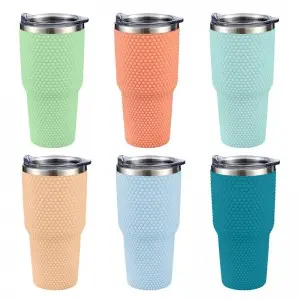The importance of recycling has grown in recent years. We all know recycling bottles is essential, but what about bottle caps? Will they cut recycling fees? In this blog post, we take a deep dive into the topic of recycled bottle caps, discussing their recyclability, alternative disposal methods, and the impact they may have on the environment. Let’s explore how we can reduce waste and make better choices for our planet.
Recycled bottle caps:
The first question that comes to my mind is whether the cap can be recycled along with the bottle that comes with it. The answer may vary depending on where you are and what recycling facilities are available in your area. Caps have traditionally been made of a different material than the bottle, making the recycling process challenging. However, modern recycling facilities have introduced more efficient technologies that can process bottles and caps made from a variety of materials.
Some recycling centers require the caps to be separate from the bottle, while others accept them together. Be sure to check with your local recycling facility or refer to their guidelines for their specific requirements. Many facilities recommend affixing caps tightly to bottles prior to recycling to prevent them from being lost during the sorting process.
Recycling method:
If your local recycling facility doesn’t accept bottle caps, or you’re not sure about their recycling potential, there are other ways to dispose of them responsibly.
1. Bottle cap recycling: Some organizations or companies specialize in recycling bottle caps. They collect bottle caps from individuals and process them into various products such as artwork, cushions, and even new bottle caps. Look for such initiatives in your community and contribute by collecting and donating bottle caps.
2. Reuse and upcycling: Another option is to reuse bottle caps in creative ways at home. They can be used as craft materials for jewelry, decorations, or DIY projects. Get creative and explore a variety of upcycling ideas to give your bottle caps a new purpose.
Impact on the environment:
If not handled properly, bottle caps pose a threat to the environment and wildlife. If they enter the recycling stream without separation, they can contaminate the recycled material and cause inefficiencies in the recycling process. Additionally, loose caps can end up in oceans, rivers and other natural habitats, causing harm to marine life and polluting ecosystems.
To mitigate these risks, it is critical to follow the recommendations of your local recycling facility or choose an alternative disposal method. By doing this, you help reduce waste, conserve resources and protect our environment.
in conclusion:
While the recyclability of bottle caps depends on local resources and facilities, there are viable solutions to dispose of them sustainably. Whether through recycling, upcycling, or supporting dedicated organizations, we can all play our part in reducing waste and minimizing our negative impact on the planet. Remember that small individual actions can collectively make a big difference, so let’s make conscious choices and prioritize the responsible disposal of bottle caps and other recyclables.
Post time: Jul-05-2023
